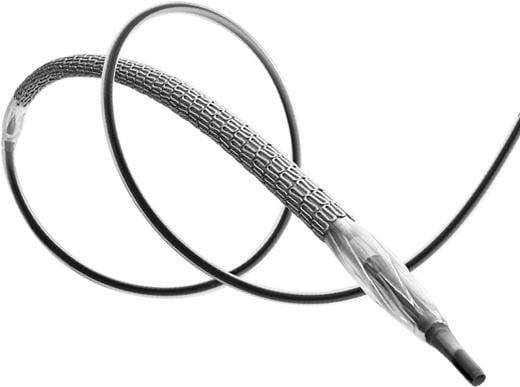
May 29, 2018 – Medtronic plc announced the initiation of a U.S. clinical study to assess the safety and efficacy of drug-eluting stents (DES) for the treatment of bifurcation lesions. Bifurcation lesions account for approximately 20 percent of all percutaneous coronary interventions (PCI).[i] The Bifurcation Cohort, part of the RESOLUTE ONYX Post-Approval Study, will include patients with coronary artery disease (CAD) receiving the Resolute Onyx DES in sizes ranging from 2–5 mm in diameter.
The Resolute Onyx DES is not approved for the treatment of bifurcation lesions in the U.S.
Bifurcation lesions occur when plaque builds up around the junction of two coronary arteries – where one branches off another. These lesions are considered challenging to treat because of anatomical variations in the vessels and the difficulty associated with reaching the side branches. Treatment of bifurcation lesions are commonly associated with lower success rates and increased rates of long-term adverse cardiac events.1
“Patients with bifurcation lesions present a unique challenge for interventional cardiologists. This study will help us evaluate these patients in a controlled setting, which will help expand our knowledge base,” said Matthew J. Price, M.D., interventional cardiologist at Scripps Clinic in La Jolla, Calif., and national principal investigator of the Bifurcation Cohort of the RESOLUTE ONYX Post-Approval Study. “The unique design of Resolute Onyx DES may be well-suited to treat bifurcation lesions in a wide range of vessel sizes.”
The Resolute Onyx DES platform features Core Wire Technology, an evolution of Continuous Sinusoid Technology (CST). CST is a unique Medtronic method of stent manufacturing, which involves forming a single strand of cobalt alloy wire into a sinusoidal wave to construct a stent. Core Wire Technology enables thinner struts while maintaining structural strength and visibility.
The multi-center, single-arm study intends to enroll 250 patients with bifurcation lesions from 30 sites in the United States and Europe. The primary endpoint is target vessel failure (TVF) at 12 months. Study participants will be followed for three years and receive regular follow-up health assessments. Data from the study will be used to support an application for an indication expansion to include bifurcation lesions for the Resolute Onyx DES from the U.S. Food and Drug Administration (FDA).
The Resolute Onyx DES received CE Mark in September 2014 and FDA approval in April 2017. The device is currently indicated in the United States for improving coronary luminal diameters in patients, including those with diabetes mellitus, with symptomatic ischemic heart disease due to de novo lesions of length ≤ 35 mm in native coronary arteries, with reference vessel diameters of 2-5 mm.
For more information: www.medtronic.com


 January 05, 2026
January 05, 2026 









